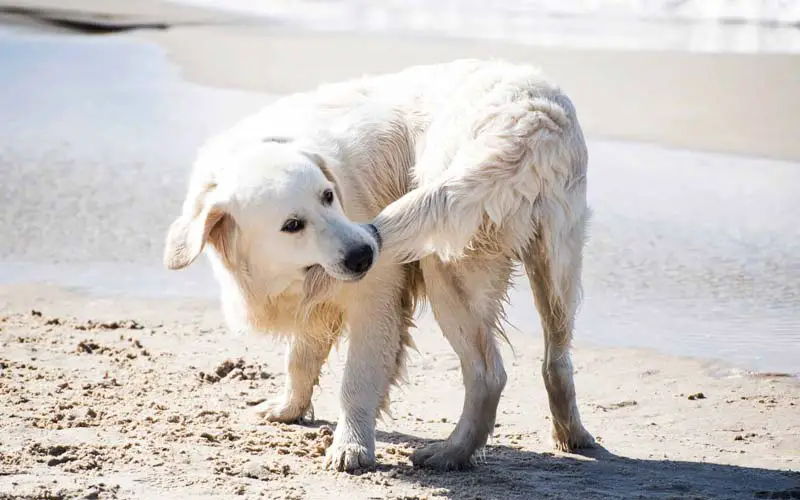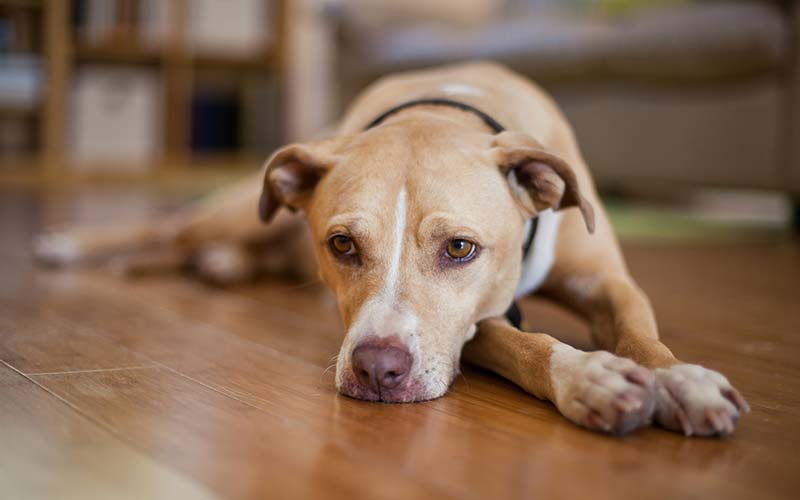As a pet owner, you cherish every cuddle and moment with your furry companion. But what happens when your dog starts to emit an unusual fishy odor? This pungent smell can be unpleasant and concerning, leaving you wondering about its source and what it means for your dog’s health.

Fishy odors in dogs often point to specific health or hygiene issues, such as anal gland problems, dental conditions, or infections. While some causes are relatively harmless, others may require immediate veterinary attention. Understanding these potential causes and addressing them early ensures your dog stays healthy and comfortable.
In this article, we’ll explore the reasons behind this unusual smell, provide practical solutions, and guide you on when it’s time to seek professional help. Let’s dive in to uncover how you can keep your dog smelling fresh and feeling their best.
1. Common Causes of a Fishy Smell in Dogs
A fishy odor in dogs is often a sign of an underlying health issue or dietary factor. Here are the primary causes to consider:
1. Anal Gland Problems
The anal glands, located on either side of a dog’s anus, produce a secretion used for marking territory. When functioning properly, these glands empty during bowel movements. However, they can become impacted or infected, leading to discomfort and a strong, fishy smell.
- Causes: Insufficient emptying during defecation, infections, or inflammation.
- Signs to Watch For: Scooting (dragging the rear along the ground), excessive licking of the anal area, swelling, or difficulty sitting.
2. Dental Issues
Oral hygiene plays a significant role in preventing bad odors. Tartar buildup, gum disease, or abscesses can lead to foul-smelling breath, often perceived as fishy.
- Causes: Poor dental care, retained food particles, or infections.
- Prevention: Regular brushing with dog-safe toothpaste and routine dental cleanings can prevent these issues.
3. Skin Infections
Bacterial or fungal infections can produce strong odors. Yeast infections are particularly common and are often associated with allergies.
- Symptoms: Redness, itchiness, dandruff, or greasy skin.
- Risk Factors: Poor grooming, allergies, or an underlying skin condition.
4. Ear Infections
A fishy smell from the ears could indicate otitis (ear infection), which may occur due to bacteria, yeast, or mites. Dogs with floppy ears are particularly susceptible.
- Symptoms: Head shaking, scratching at the ears, discharge, or visible redness.
- Causes: Allergies, foreign bodies, or excessive moisture in the ear.
5. Dietary Factors
Some diets, particularly those rich in fish-based proteins, can influence a dog’s body odor. Additionally, digestive issues may cause flatulence with a fishy smell.
- Prevention: Consult a veterinarian to ensure your dog’s diet is balanced and doesn’t cause unwanted side effects.
Understanding these common causes can help pet owners address the issue early and seek appropriate treatment when necessary. If the odor persists, consult a veterinarian for a thorough evaluation. Would you like me to expand on any of these points?

2. Home Remedies and Preventative Measures
Managing a fishy odor in dogs involves both addressing the root cause and practicing good hygiene. Here are some effective remedies and preventive strategies:
1. Regular Grooming
Proper grooming is essential for maintaining your dog’s overall cleanliness and reducing unpleasant odors.
- Bathing Frequency: Bathe your dog as needed based on their breed, coat type, and activity level. Overbathing can strip natural oils, so aim for a balance. Use dog-specific shampoos formulated to clean without irritating their skin.
- Brushing: Regular brushing removes debris, dead skin cells, and loose hair that can trap odors. It also distributes natural oils, keeping the coat healthy.
2. Anal Gland Care
The anal glands may require manual expression if they fail to empty naturally, a common cause of fishy smells.
- When to DIY: If you’ve been trained by a veterinarian, you can safely express the glands at home. This involves gently squeezing the area to empty the contents.
- Seek Professional Help: If you’re uncomfortable or notice signs of infection (e.g., swelling, redness), consult a vet or groomer to handle the issue.
3. Oral Hygiene
Maintaining oral health is vital for preventing bad breath.
- Daily Brushing: Use dog-safe toothpaste and a soft-bristled brush to clean your dog’s teeth and gums.
- Dental Treats and Chews: These can supplement brushing by reducing plaque and freshening breath. Look for products approved by veterinary dental associations.
4. Healthy Diet and Supplements
A balanced diet can minimize body odors and support overall health.
- Diet Adjustments: Ensure your dog’s diet is nutritionally complete and avoid over-reliance on fish-based foods if odors persist.
- Supplements: Probiotics can improve gut health, while omega-3 fatty acids support skin and coat health, reducing the risk of infections and odors.
Incorporating these practices into your dog’s routine can significantly reduce fishy odors and enhance their well-being. Consistency is key, and if issues persist, consult a veterinarian for further guidance. Would you like details on specific grooming products or dietary recommendations?

3. When to Consult a Veterinarian
While many causes of a fishy odor in dogs can be managed at home, there are times when veterinary intervention is necessary. Here’s when and what to expect:
1. Persistent Odor Despite Grooming and Hygiene Efforts
If the fishy smell lingers even after implementing grooming, dietary adjustments, and oral care, it’s time to consult a vet. Persistent odors often indicate deeper issues, such as recurring anal gland problems, infections, or metabolic conditions that require professional treatment.
2. Additional Symptoms to Watch For
A fishy smell accompanied by the following symptoms warrants immediate veterinary attention:
- Pain or Discomfort: Your dog may yelp when touched, avoid sitting, or show signs of distress.
- Swelling or Redness: In areas like the anal region, ears, or skin, these symptoms could indicate infection or abscesses.
- Lethargy or Behavioral Changes: A loss of energy or withdrawal from usual activities might signal a systemic issue.
3. What to Expect During a Vet Visit
When you bring your dog to the veterinarian, the evaluation typically includes:
- Diagnostics: The vet may conduct a physical exam, inspect the anal glands, ears, teeth, and skin, and run tests such as bacterial cultures or bloodwork.
- Treatment Options: Depending on the diagnosis, treatment may involve:
- Manual Expression of Anal Glands: For impactions or infections, this might also include flushing and applying antibiotics.
- Medications: Antibiotics, antifungals, or anti-inflammatory drugs to address infections or inflammation.
- Dental Procedures: Scaling, polishing, or extractions for severe oral issues.
- Dietary Recommendations: Tailored advice to address odor-related dietary concerns.
Early intervention can prevent complications and ensure your dog remains healthy and comfortable. If unsure, it’s always better to err on the side of caution and seek professional advice. Would you like suggestions for preparing for a vet visit or potential questions to ask during the appointment?

4. Proactive Health Tips
Maintaining your dog’s health proactively can prevent many issues, including unpleasant odors. Here are essential steps to keep your pet in top condition:
1. Routine Checkups
Regular veterinary visits are crucial for early detection of health problems.
- Frequency: Schedule annual checkups for healthy adult dogs; puppies and senior dogs may require biannual visits.
- Benefits: Routine exams allow vets to monitor your dog’s weight, dental health, and potential issues with skin, ears, or anal glands. Early detection can save your pet from discomfort and more invasive treatments later.
2. Monitoring Behavior
Observing your dog’s habits and demeanor can help you identify health concerns early.
Signs to Look For:
- Excessive licking or scratching.
- Changes in appetite or energy levels.
- Scooting, head shaking, or avoiding physical contact.
Action Steps: If you notice unusual behaviors, document them and consult your vet for advice. Early intervention can prevent minor issues from escalating.
3. Maintaining a Hygienic Home
A clean environment plays a vital role in your dog’s overall health and odor control.
Cleaning Frequency:
- Wash your dog’s bedding weekly to remove odors, hair, and bacteria.
- Clean toys, food bowls, and water dishes regularly to prevent bacteria buildup.
- Vacuum and mop areas your dog frequents to control shedding and allergens.
Benefits: A hygienic space reduces the likelihood of infections and keeps your dog and home smelling fresh.
By incorporating these proactive measures, you can promote your dog’s well-being and prevent common issues that lead to unpleasant odors. Would you like guidance on creating a health checklist or reminders for routine tasks?

Conclusion
A fishy odor in your dog can be more than just an unpleasant nuisance—it often signals an underlying issue that may need attention. By understanding common causes such as anal gland problems, dental issues, skin infections, ear infections, and dietary factors, you can take proactive steps to address the smell. Regular grooming, maintaining oral hygiene, and monitoring your dog’s behavior are essential practices that contribute to overall health and odor management.
If home remedies and preventive measures do not resolve the issue, don’t hesitate to consult a veterinarian. Persistent odors accompanied by pain, swelling, or behavioral changes could indicate a more serious problem that requires professional evaluation and treatment.
Ultimately, being proactive about your dog’s health with routine checkups, attentive observation, and a clean living environment ensures your furry friend stays healthy and happy. Don’t wait for small issues to become big ones—taking action today can lead to a healthier, more comfortable life for your pet. If you’re unsure of the next steps, reach out to your veterinarian and ask questions to ensure your dog’s well-being.